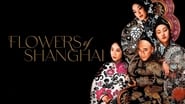GamerTab
That was an excellent one.
Matrixiole
Simple and well acted, it has tension enough to knot the stomach.
Quiet Muffin
This movie tries so hard to be funny, yet it falls flat every time. Just another example of recycled ideas repackaged with women in an attempt to appeal to a certain audience.
Fleur
Actress is magnificent and exudes a hypnotic screen presence in this affecting drama.
Red-125
The film Hai shang hua was shown in the U.S. with the title Flowers of Shanghai (1998). It was directed by Hsiao-Hsien Hou.This movie is a Japanese film, but the dialog is in Cantonese, Mandarin, and the Wu language of Shanghai. (Although I haven't seen any confirmation of this, it looked to me as if some of the dialog was dubbed. Possibly the actors were speaking Japanese, but were dubbed into Chinese.)This is a meticulous, careful film about houses of prostitution in Shanghai in 1884. Four houses are represented, but I have to admit that it wasn't always clear to me in which house the action was taking place. These houses, called "Flower Houses," were only for the very wealthy and powerful. The furnishings were elegant, there were servants everywhere, and the women were very beautiful. Unlike what we outsiders know about geishas, these women didn't appear to be skilled in musical instruments or singing. Everyone understands that they perform their professional duties in the bedrooms. However, the houses are used for parties and drinking, with the women present as hostesses and onlookers. (Incidentally, in a film about prostitutes, there's absolutely no visible flesh--all the women are fully. and elegantly. clothed at all times.)The social hierarchy of both the "flowers" and their clients is carefully delineated and known to all. The "Aunties" rule the houses, but the women themselves have a carefully defined status. They are more like indentured servants than slaves, even though they have been purchased from their parents at a young age. Some of the women have their own servants, and the houses are full of cooks and waitresses.This film was shot completely indoors, in sets, in Japan. There's not a single scene shot outside one of the houses. People talk about going for a ride in the park, or for an evening at the opera, but we never see anyone actually do this. Instead, we have a complex indoor social world, with feuds, ambitions, betrayals, and greedy acts all taking place before us. Hou Hsiao-hsien is known for his long takes, and his slow dissolves. Typically, his camera doesn't move at all, although in this film it moves, but only slowly and carefully. This is a film that I highly recommend, although I admit that I wasn't always certain about the specifics of the plots. As I read the IMDb synopsis, I realized that I had missed some key elements. However, I still enjoyed the movie, and it will work--as it did for me--even if you can't always remember which flower is Jasmin and which is Jade.We saw this film as part of a Hou Hsiao-hsien retrospective at the wonderful Dryden Theatre at George Eastman House in Rochester. It will work on DVD, but it you get a chance to see it in a theater, go for it. It's interesting, powerful, and opens up a whole new world.
chanw
This is the first time I have watched this director's work. The only way I can comment on it is to compare it with something I'm familiar with. That said, I have to say I see a lot of Wong Kar Wai (a well known somewhat off mainstream Chinese director) in Shanghai Flowers.I am a fan of Wong's movies in general. To many viewers, even some of Wong's masterpiece was too slow of a pace. Shanghai Flowers certainly lacks the occasional subtle high/low found in Wong's movies - no matter how slow.A tidbit to add is that, although listed as spoken in Shanghainese (which is understood by mainly Shanghai ppl only), the dialogues in private between the lead actor (Leung) and his mistress were done in Cantonese. This intermixing of dialects and/or languages has appeared to be a trendy technique in many Chinese productions. That is to say, it is rare that a viewer (even a Chinese one) can sit through any late Chinese movie without having to read some of the subtitles.
zoegene
I have to view the movie twice, once by reading the subtitles, and the second time to enjoy the movie itself. When I was reading the subtitles, I found "Flowers of Shanghai" boring. When I focused on the film itself, it was actually a nice movie. I could feel the opium filled air, the emotions of the characters were buried under the smokes. Only a small number of Chinese-speaking audience would have no need to read the subtitles because the dialogs were spoken in a specific dialect.
nunculus
The Taiwanese writer-director Hou Hsiao-hsien is regarded by many as the greatest living filmmaker, and FLOWERS OF SHANGHAI is widely considered one of the strongest contemporary movies. Hou's approach is both anthropological and highly formalized: this examination of the economics and Machiavellian power politics of a Shanghai brothel in the mid-1800's stays remote. The feeling is sometimes that of a news crew eager not to intrude, but the mise-en-scene evokes the mastery of space-carving in Kurosawa's HIGH AND LOW or Bresson's UNE FEMME DOUCE. Shot in wide, mobile masters that go on for four or five minutes at a stretch, FLOWERS is theatrical in the extreme, and, as in a Yuan drama or a Kun opera, Hou stays at a more than respectful reserve from his characters. For some, this spells high-art elegance; others may feel starved for vividness and human immediacy, and wish the film to end far sooner than it does.



